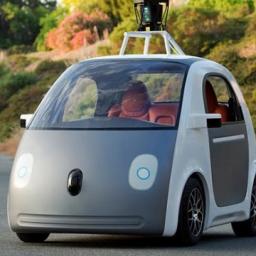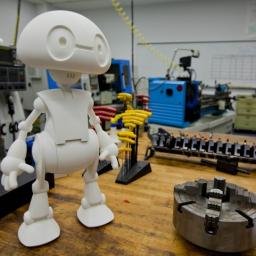
Finally, a story for resident conspiracy theorists that has truth behind it, an impact on the world, and may actually mean something.
TrueCrypt, the standout semi-open source multiplatform full-disk-encryption software package, has acted all squirrelly and more or less shut the the project down, blaming it, somewhat hilariously, on the end of Microsoft's Windows XP support. All this while a paid (and long awaited) audit of TrueCrypt has been nearing completion.
Discussed at lots of places including
lifehacker ,
Slashdot ,
SoylentNews , and
reddit .
This is really troubling for lots of reasons. The audit was deemed necessary because TC's authorship and operation were shrouded in mystery. (the two main developers are anonymous and go by the pseudonyms "ennead" and "syncon") This doesn't help any in that regard.
What happened? Loss of control of the domain? Website defacement?
Warrant canary?
While Google's previous self-driving vehicles have been either a converted Toyota Prius or a Lexus SUV, their
new prototype uses a
new self-manufactured design that looks like a golf cart.
Unlike previous models, these cars won't have human drivers monitoring them at all times. Google said the cars can detect objects up to 200 yards away in all directions and adjust their speed, turns and braking accordingly.
Highlights include:
- No steering wheel or pedals
- Emergency stop button
- Top speed of 25 MPH (40 KPH)
- 2 seats
- Electric drive
The corporate overlords of SandForce SSD controllers have
changed hands again. Seagate, who was missing an SSD controller of its own, will become the new home. The following list gives a brief history of the numerous mergers involved:
- 1999 - HP's non-computing products division spun out as Agilent
- August 2005 - Agilent semiconductor products group spun out as Avago
- January 2012 - SandForce sold to LSI ($370 million)
- 2014 - LSI sold to Avago ($6.6 billion)
- May 2014 - Avago SSD division sold to Seagate ($450 million)
Because of easy licensing and not being tied to a particular NAND manufacturer, SandForce SSD controllers are very popular and have found their way into
many product lines , including:
- Intel 520, 530, 535, 330, 335
- Kingston HyperX, HyperX 3K, SSDNow E100, SSDNow KC100, SSDNow V+200, SSDNow V300
- Corsair Force Series
- OCZ Vertex 3, Agility 3, RevoDrive
- And many others...

Intel plans to
offer a consumer grade 3D printed robot for $1600 later this year. Jimmy,
a desktop robot , will include an Intel chip and be programmable using open source tools.
The hardware designs will be freely available online, allowing anyone with access to a 3-D printer to generate and assemble the basic parts.
The grand vision is to lower the barrier of entry to robotics.
 Concerns over errors
Concerns over errors in health articles on Wikipedia have caused some scientists
to warn against using the free encyclopedia to self diagnose medical conditions.
Most Wikipedia articles representing the 10 most costly medical conditions in the United States contain many errors when checked against standard peer-reviewed sources. Caution should be used when using Wikipedia to answer questions regarding patient care.

After
several rumors this month,
Apple and
Beats Music officially
confirm a buyout of the
streaming music service for 3 billion.
Despite rumors that Apple was only interested in Beats Music in an effort to boost a decline in iTunes numbers, the deal includes both the hardware and the streaming software sectors of Dr. Dre's business. And it's Apple's largest purchase ever.
For a monthly subscription of $9.99, users of the service can stream music from a library of over 20 million songs.

A federal appeals court yesterday held that copyright holders may not abuse the legal process to obtain the identities of thousands of Internet users.
The plaintiff in this case, AF Holdings, sought the identities of more than 1,000 Internet users that it claims are linked to the illegal downloading of a copyrighted pornographic film.
The
EFF , American Civil Liberties Union, the ACLU of the Nation's Capital, Public Citizen, and Public Knowledge all came to the defense and won a
crushing blow against the copyright holder.
The upcoming car manufacturer received
an unsolicited B- credit rating from Standard & Poor due to "considerable uncertainty" about its long-term prospects. The rating, six levels below investment grade, was derived independently of Tesla and comes after over $2.3 billion was successfully raised by the company in March to fund a
new battery factory. Shares in Tesla have risen 41 percent this year.

The Firefox OS reference device,
the Flame is now available for
pre-order for $170.
To standardize the design, development, and testing of Firefox OS, Mozilla has partnered with a company called T2Mobile to manufacture, distribute, and update a Firefox OS reference phone called the Flame. Until now, there has been no "reference device" and the options for getting something through retail were limited.
The Flame will also be a great development and testing environment for third party app developers targeting Firefox OS and HTML5.
Specifications:
- 1.2 Ghz Dual core processor (Qualcomm MSM8210 Snapdragon)
- 1 GB RAM
- 4.5" screen (854i-480)
- 5 MP rear camera, 2 MP front camera
- 8 GB storage, MicroSD slot
- GPS, NFC
- WiFi: 802.11 b/g/n, Bluetooth 3.0, Micro USB

I stumbled across
Science Magazine's Experimental Error column written by
Adam Ruben this week. What caught my eye? Adam's latest entry entitled
"Forgive Me, Scientists, for I Have Sinned" , where Adam describes numerous ways he has felt and acted in an entirely imperfect and human way, but not as he might imagine a "good scientist" is supposed to feel or behave. Highlights from the article include: (1) "I remember about 1% of the organic chemistry I learned in college. Multivariable calculus? Even less.", (2) "I have gone home at 5 p.m.", and (3) "I have felt like a fraud, not once, but with such regularity that I genuinely question whether anyone has noticed I don't belong here.... I have delusions that people will read this confession and applaud my bravery for identifying a universal fear." Adam Ruben is a
molecular biologist-come-comedian who teaches a
standup comedy class at Johns Hopkins University, providing a fresh take on the non-meritocracy of science careers, if nothing else.
 Finally, a story for resident conspiracy theorists that has truth behind it, an impact on the world, and may actually mean something.
Finally, a story for resident conspiracy theorists that has truth behind it, an impact on the world, and may actually mean something.





